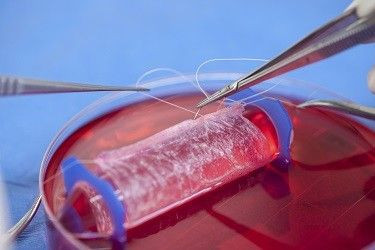Sex via Lab-Grown Vagina Just as Pleasurable!
The Vagina Implants Will Benefit Those With the MRKH syndrome, Vaginal Cancer Patients and Those With Injuries

Scientists are now able to grow specialised organs in the lab, including the vagina, not just that they have successfully implanted it in the patients. A study led by Anthony Atala, M.D., director of Wake Forest Baptist Medical Center's Institute for Regenerative Medicine said that four teenage girls have received the "implants" and the organs are functioning normally. The organs were engineered with their own cells.
For the study, they took girls aged between 13 to 18 and those who were suffering from a rare genetic condition called, Mayer-Rokitansky-Küster-Hauser (MRKH) syndrome. This is a condition in which the vagina and the uterus are underdeveloped. The surgeries were performed between June 2005 and October 2008 and eight years then, they found that the organs were working perfectly like in normal people.
The follow up treatment of sexually active women have showed that the organ functioned normally. Atala said that this was the first study to demonstrate that vaginal organs that could be constructed and implanted into humans. According to the researchers, the organ implant will also benefit patients with vaginal cancer or injuries.
Atala said, "In addition, this study is one more example of how regenerative medicine strategies can be applied to a variety of tissues and organs". The vaginas implanted were very similar in makeup and function to native tissue.
The patients who received the implant were given Female Sexual Function Index questionnaire. Their responses revealed that their sexual organs functioned normally, they had pain free sexual intercourse and they also had the same level of desire and satisfaction as women with normal organs.
To develop these vaginas, a sample of the tissues from the vulva was taken. The size of the tissue was less than the size of a postage stamp. These tissues were made to multiply in the lab. After this the doctors created a cavity in the patients' body and implanted the organ. One side was attached to the uterus and the other to the opening of the cavity.
The surgery is very different from the reconstructive surgeries for the MRHK syndrome. But researchers say that there would be a lot of complications, some patients can develop a narrowing or contraction of the vagina.
The team was successful in implanting "implanted lab-engineered urine tubes (urethras) into young boys. However, the researchers of Atala's team say that one limitation of the trial is that it was conducted on a very small group of people.
The findings were published in the journal Lancet.





















